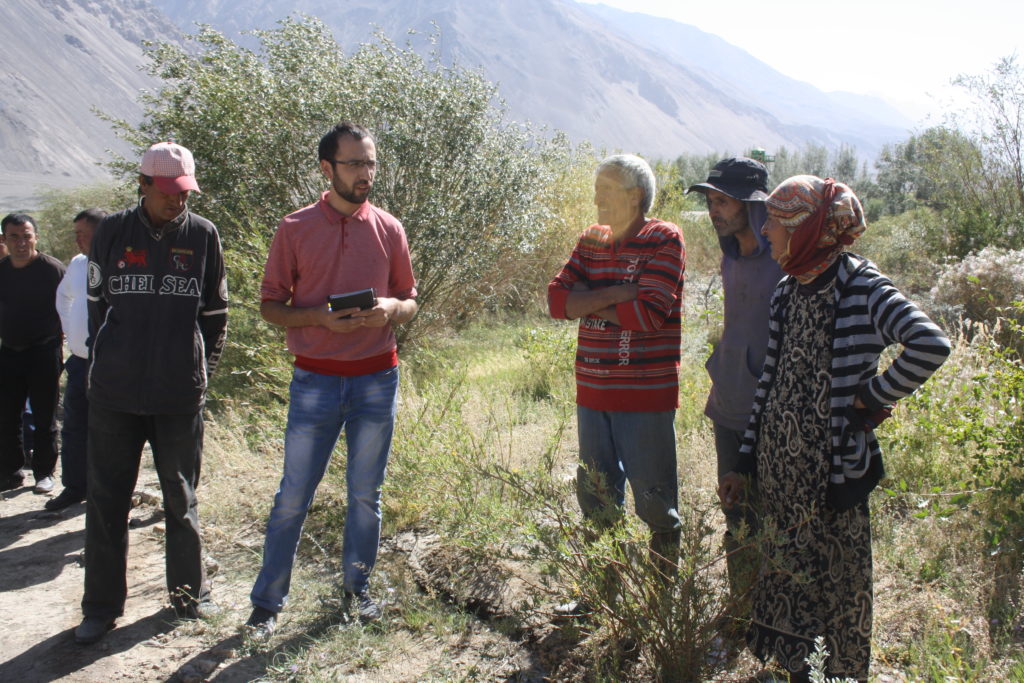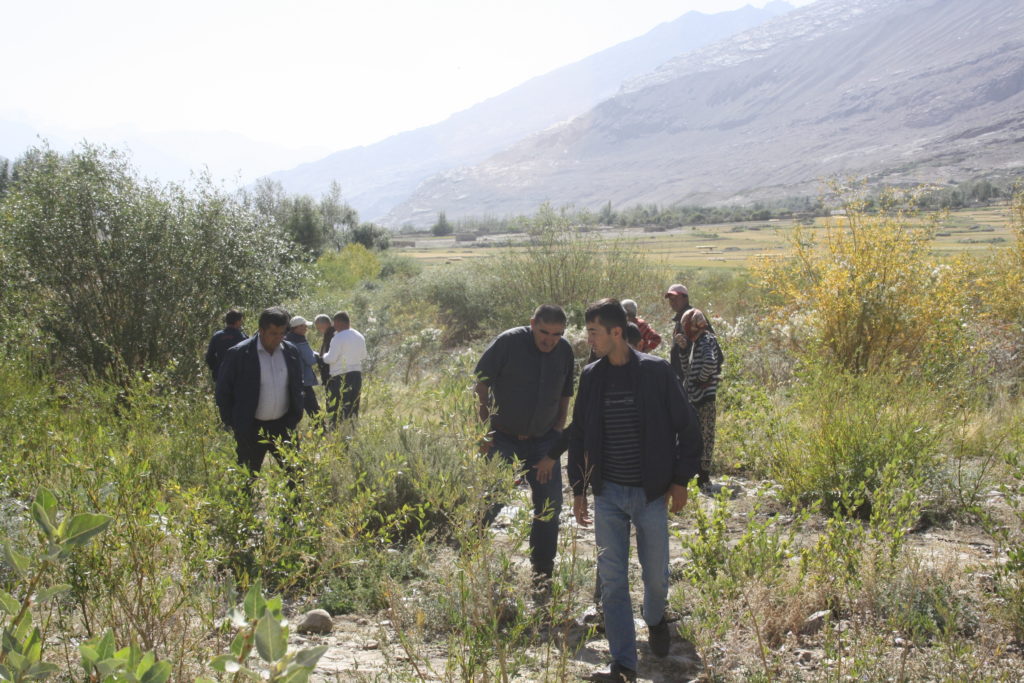GIZ in partnership with the State Forest Enterprise of Penjikent (SPE-Penjikent) and the NGO CAMP Tabiat organized a study tour for forest users and foresters of SFE-Penjikent to the State Forestry Enterprise of Gorno-Badakhshan Autonomous Region (SFE-GBAO) on 12-13 September 2019. During a two-day visit, forest users from different villages in Penjikent studied the experience and achievements of their colleagues in GBAO, who were engaged in reforestation activities within the framework of the Joint Forest Management (JFM) approach. SFE-GBAO in Khorog delivered a presentation on the JFM approach for the delegation. The latter also visited the plots under reforestation in Ishkashim and Shugnan districts. During meetings with colleagues from GBAO, study tour participant discussed the practical results and benefits of joint forest management
“The visit helped us to realize the importance and positive impact of the JFM approach on improving forest areas. Living in the harsh climate with no access to water, people in the Pamir were able to successfully reforest the area as part of the JFM approach. This visit convinced us that the JFM approach will enable us to achieve even better results in Penjikent, where the climate is more favorable,” shared Tuichiboi Sokhibov, Chief Forester of SFE-Penjikent. The participants of the study tour could witness the real improvements achieved through the JFM approach, which motivated them to continue reforestation activities in their respective districts.
For reference:
In Tajikistan, the JFM approach was for the first time successfully implemented by the regional programme “Sustainable and Climate Sensitive Land Use for Economic development in Central Asia” in GBAO. Today, programme works in four districts of GBAO – Roshtqala, Ishkashim, Shugnan and Vanj. The total area of forests covered by JFM and reforestation measures exceeds 2,500 ha.
As part of the JFM approach, forest users have the legal right to use forest areas and, according to individual management plans, are responsible for the protection and development of forests. The harvested products are to be shared between users and forest enterprises, which makes both of them interested in sustainable forest management.

